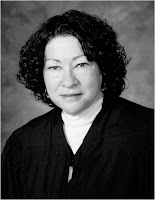New Ohio Supreme Court Ruling on Expungements
/The Supreme Court of Ohio has just issued an important ruling which clarifies some of the issues defendants and their lawyers are faced with when dealing with whether or not a defendant can obtain an expungement of multiple convictions stemming from a single event of criminal conduct. In State v. Futrall, 2009-Ohio-5590, the Supreme Court of Ohio held that if any of the criminal convictions stemming from the same series of events are barred from being expunged, then all of the separate convictions from that series of events cannot be expunged. For instance, if the defendant's course of conduct resulted in 4 separate convictions, if only one of those convictions is barred by statute from being expunged, then all of the convictions from that case are also barred from being expunged. Some types of convictions are barred by law from being expunged (for example, various crimes of violence and DUIs). If the defendant after a trial or as part of a plea negotiation is found guilty of one of these convictions, her/she cannot get any of what would otherwise be expungible convictions expunged. Thus, defendants and thier lawyers must be very cautious when considering this new ruling when deciding to go t trial or enter a plea - especially if that defendant has aspirations of getting that particular conviction(s) expunged in the future.




